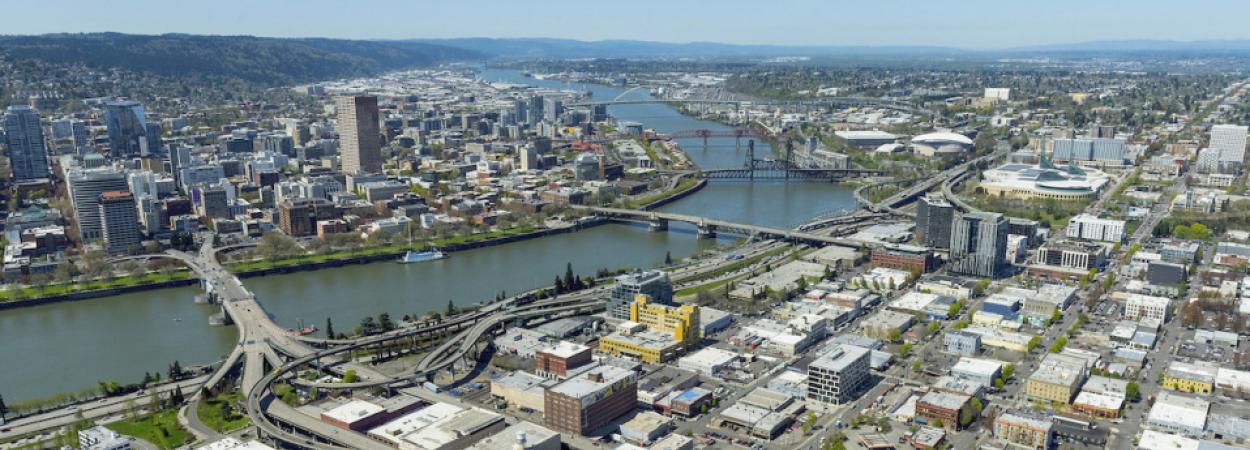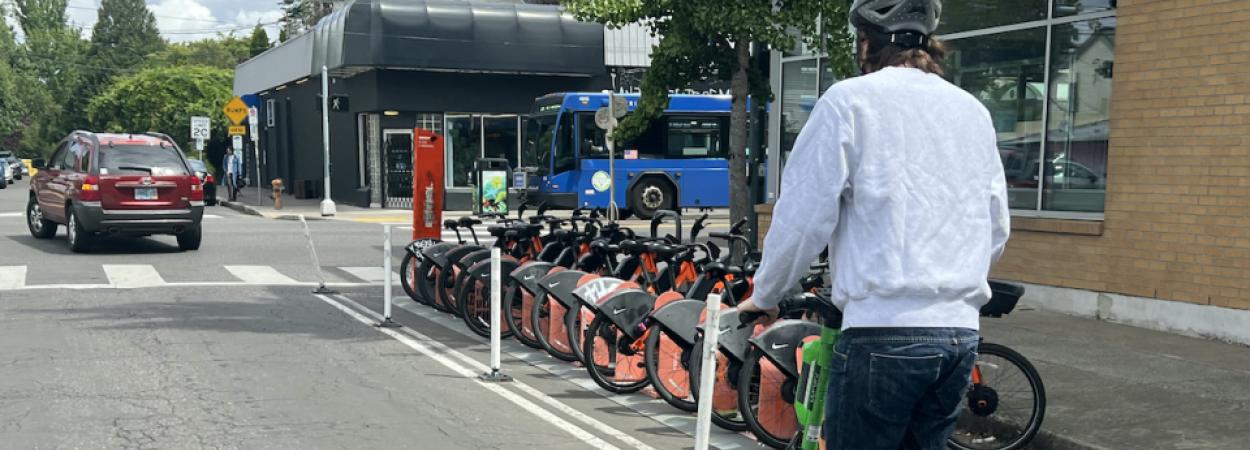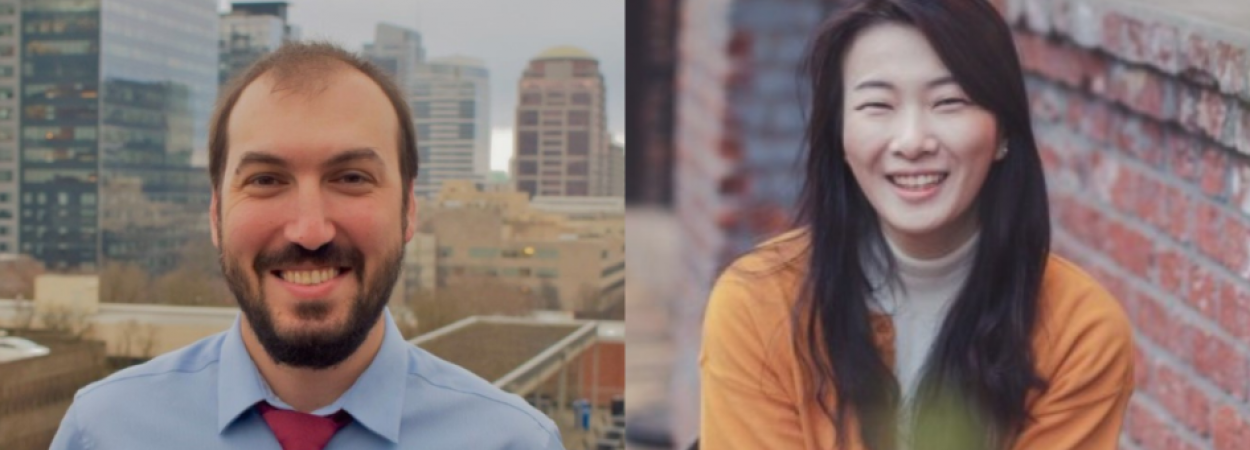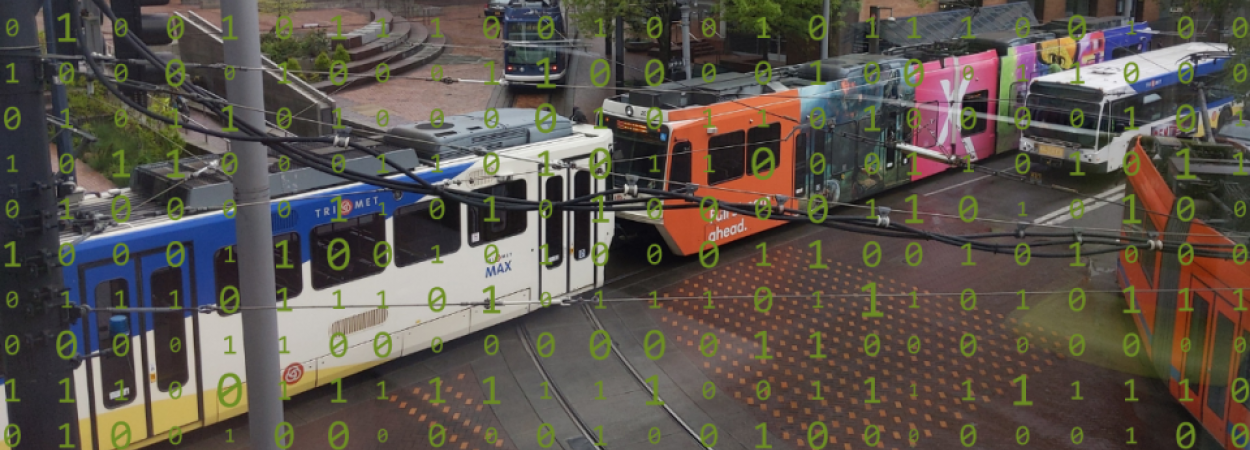 |  |  |

Transportation decision-makers typically use benefit-cost analysis (BCA) to evaluate the tradeoffs of transportation projects. However, it is difficult to produce state-specific measures that are multimodal and can consistently evaluate the full range of public and private benefits and costs for Oregonians.
Supported by a $200,000 grant from the Oregon Department of Transportation (ODOT), Jenny Liu of Portland State University will lead a research effort to develop an Oregon-specific, multimodal framework for transportation benefit-cost analysis.
Having a framework specifically tailored to Oregon can help ODOT make informed decisions on infrastructure, policies and support programs based on information about the economic and societal impacts of each transportation mode.
Launched in May 2024, the project, "Mode-Based Benefit-Cost Analysis Calculator" aims to create an easy-to-update Oregon BCA framework to com…
Read More
Shared micromobility (including shared electric scooters and bikes provided by private companies) is one of the newest transportation options that has come to cities in the last several decades. A new report explores the different ways cities charge shared micromobility companies to operate, and how these funds are used.
In the newly released report, John MacArthur of Portland State University, Kevin Fang of Sonoma State University and Calvin Thigpen of Lime examine data from 120 cities in 16 countries around the world. They also conducted a survey of cities’ shared micromobility program managers, with responses representing 33 jurisdictions in North America.
Download the report: "Taxing shared micromobility: assessing the global landscape of fees and taxes and their implications for cities, riders, and operators (PDF)"
"This study builds our understa…
Read More
In a new project that's just getting underway, Portland State University researchers will work with researchers at the University of North Carolina (UNC) at Chapel Hill to develop tools and a decision-making process to proactively design and retrofit roadways to make them safer.
Led by Sirisha Kothuri of the Maseeh College of Engineering & Computer Science and supported by the Washington Department of Transportation (WSDOT), the effort aims to help WSDOT implement a Safe System Approach to prevent dangerous crashes. They intend to implement safe systems in conjunction with another principle embraced by WSDOT and many other transportation agencies, the Complete Streets concept. Complete Streets is a planning and design method that prioritizes safe access for all road users.
"PSU along with UNC is excited to help WSDOT implement the Safe System Approac…
Read More
This is a reprint of a news story originally published by the Toulan School of Urban Studies and Planning.
Congratulations to Toulan School Assistant Professor Dr. Ozcan Tunalilar, inaugural recipient of the Arthur C. and Monika Z. Nelson Endowed Scholar Award, and Urban Studies doctoral candidate Minju Kim, inaugural recipient of the Nelson Endowed Doctoral Award.
The awards were established by PSU alumni Dr. Arthur Christian “Chris” Nelson and his wife Monika to support emerging scholars in the College of Urban and Public Affairs (CUPA). Dr. Nelson was inspired to create these awards because he himself received financial aid at a critical moment as a graduate student.
The Scholar Award supports new and early career faculty, as determ…
Read More
Portland State University's Transportation Research and Education Center (TREC) maintains two large, public transportation data lakes: PORTAL and BikePed Portal. The latest round of funding for PORTAL, in the amount of $1.6 million, was awarded in February 2024 and will cover PORTAL's activities through the next five years. BikePed Portal, too, recently received $100K for another year of funding, and both are the focus of some exciting innovations in transportation data.
The two centralized data repositories, unique both in their size and in the fact that they are accessible (PORTAL is freely available to the public, and BikePed Portal has limited public access as well), are supported by multiple federal, state, and regional agencies. Federal funding for PORTAL comes from the Federal Highway Administration (FHWA)'s Surface Transportation Block Grant (STBG) funding, suballocated by M…
Read More